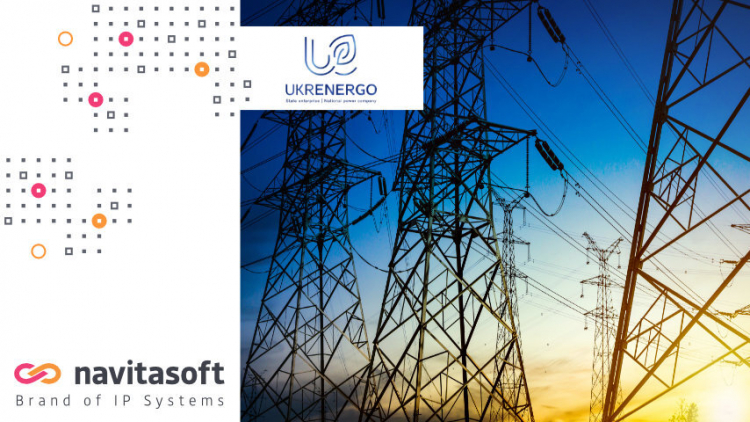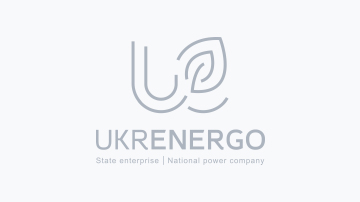
21 July 2020 – Kiev/Budapest. Ukranian power TSO Ukrenergo successfully finalized a major digitalization effort and completely put into operation its Balancing Market & Ancillary Services System and Settlement System. Ukraine took a further step in liberalizing its power market last July (2019) by enabling the operation of balancing services and imbalance settlement on market principles. This provides harmonized market signals and market pricing for power plant operators and shippers. The World Bank-financed IT project is in some respects unique in Europe and enables Ukrenergo a technological leapfrog, compared to some European TSOs who are currently replacing or are considering replacing their Market and/or Balance Management Systems.
The consortium of Navitasoft – Brand of IP Systems – and smart technologies Management-Beratungs und Beteiligungsgesellschaft mbH, together with their subcontractor Siemens AG Austria provided a futureproof, microservices architecture-based MMS solution, which contains up-to-date compliance with European Energy legislation and ENTSO-E business requirements on scheduling and reserve processes, integrated settlement and invoicing features, and a powerful time series management engine. Not everyone is aware that Ukrenergo – the single power TSO of the country – operates two market zones: the so called “Bushtyno Island” and the remaining national market, IPS of Ukraine. The operation of two zones, the sheer number of ancillary services providing units (1151) and annual demand (133TWh in 2019) puts the complexity of power system management the sixth most complex in Europe.
Decreasing dependence and slowly decoupling from the Russian grid is an ongoing challenge for most former Soviet Union countries. In this regard, certain types of reserve providers are historically either under-scaled or completely missing from the infrastructure of these markets, since there was previously no business case to invest in them. In such situations, being able to activate or deactivate reserves even on a minute-by-minute basis, and then subsequently using this small-resolution dataset to correct imbalance positions and settle balancing energy accordingly, is a demanding but valid requirement.
“The achievements of Ukrainian colleagues can serve as a guideline for TSOs in Europe and beyond, who are considering implementing an MMS system that is ready for fast adaptation to future market regulatory changes and IT technological upgrades,” said Ákos Füzi, CEO of Navitasoft. “The microservices principle and the robust time series management provides significant flexibility and enormous potential for years to come. Not only does it provide a much desired isolation between functional groups, communicating via standard APIs instead of hardcoded integration, but also supports different infrastructure concepts such as cloud-based. Deployment can then range from on-premise infrastructure to serviced nodes of a selected cloud provider. This type of system architecture will be the new standard for TSOs during the 2020s, and Ukrenergo was one of the early movers.”
“A project like this goes beyond software and integration. It is mainly about understanding how a new market should work, and designing it on a practical level that is usually not precisely stated in legislation,” highlighted Gerhard Benckendorff, CEO of smart technologies. “Building on what we have learnt together with our European customers, and based on our experience in countries like Kosovo, Macedonia and Kazakhstan, we could also advise Ukrenergo on how they can adjust their daily procedures and align them with regulation and the physical possibilities of the grid. Of course, situations remain where expectations and reality cannot be matched – then it is valuable to have a partner who has a flexible solution in addition to vast experience on how to adjust it to your benefit.”
“At the time of contracting we were under enormous time pressure. Many of the potential suppliers said earlier during procurement that the implementation timeframe is insufficient taking into account the project complexity,” Oleksandre Stremoukh, Project Manager of Ukrenergo elaborated. “However, we had a binding legal obligation from the government and Verkhovna Rada (Parliament) to start liberalized market operations from July 1, 2019. Navitasoft and smart technologies were extremely competent on market regulation issues and IT application design. From the first day in November 2018 when we kicked off the project, they came well prepared and helped us to find the right direction and efficient project management. What they achieved in eight months was remarkable. Basically, we could fulfil all necessary requirements to launch market operations as planned on July 1, 2019. Their agility and experience served well to prioritize and address unforeseen issues. During the past year we have not only achieved full integration with the remaining IT systems of Ukrenergo, but could already amend the system with necessary changes identified during the first few months of market operations.”
Kornel A. Balogh, Head of Business Development of Navitasoft, added, “Ukrainian consumers and market participants are benefiting from these changes, even if adapting to the new mechanism might appear challenging. A well-informed market participant may invest in additional generation capacity, if there are transparent conditions and price signals available. In practice, a well-established ancillary and balancing reserve market can provide such signals and incentives, while flexibly adaptable ICT systems should continuously support these mechanisms and enable rising to new challenges. This can be found along the way, in the form of the ever-finer granularity of data, the increasing number of aggregators, and the rapid spread of automated decision and execution through algorithms, including artificial intelligence. We are glad to provide a system that can address these challenges. Ukrenergo also benefits from smooth operations and increased process transparency. We see an increasing demand for such Market and Balance Management Systems in Europe and beyond.”
“In supporting Ukrenergo and our other TSO clients, we are continuously evolving the product roadmap for our Operator Suite, which can benefit from new optional microservice-based features and services available to address specific TSO needs or regulatory cases,” said Ákos Füzi. “The advanced solutions we develop together with TSOs can serve as a model for future energy market improvements across Europe.”
About smart technologies
Founded in 1999, smart technologies provides complete IT solutions for the liberalized energy markets. Its solutions manage the imbalance settlement for the Austrian electricity (APCS) and gas market (AGCS) commercial operations. Other solutions support supplier switching, renewable generation community management, subsidy management, certificate management, spot marketplace (EXAA), and regional level auction office solution. There are also solutions for transmission system operators, like ESS scheduling, ancillary service procurement via auctions, dispatching of balancing services and cross border cooperation of ancillary services.
smart technologies solutions are used in Austria, Bulgaria, Germany, Kazakhstan, Kosovo, Macedonia and Switzerland.
smart technologies shareholders are ATOS and the company management.
About Ukrenergo
Ukrenergo National Power Company is the operator of the Ukrainian electricity transmission system. It is the largest electricity transmission system operator in Eastern Europe and plays a crucial role in managing electricity exports between 4 EU member states and 3 CIS countries.





